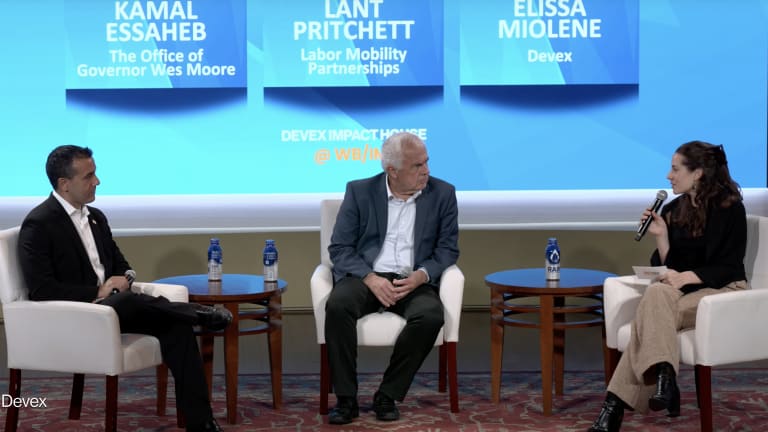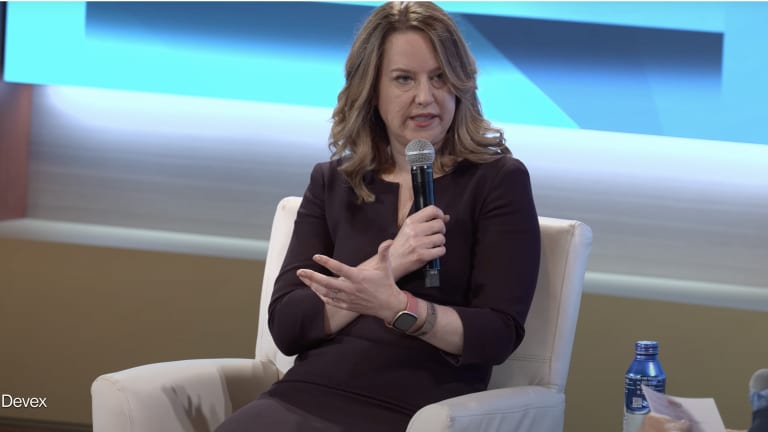Global leaders must establish legal pathways for migration and reframe the narrative, moving away from depictions of perpetual crises to positioning cross-border movement as a strategic solution to economic and social challenges, according to a Devex panel on the sidelines of the 79th United Nations General Assembly.
During the event titled From crisis to opportunity: Shaping pathways beyond humanitarian aid, Amy Pope, director general of the International Organization for Migration, highlighted the escalating displacement crisis, citing 10 million people uprooted in Sudan and 7.5 million in the Democratic Republic of Congo, with climate change further worsening the situation.
“We have people who are moving all the time because of conflict, but increasingly we have people who are moving as a result of poverty and as a result of the impacts of climate change,” Pope said, calling for immediate global action to prevent further displacement. “And that's the place where I think we really need to focus.”








